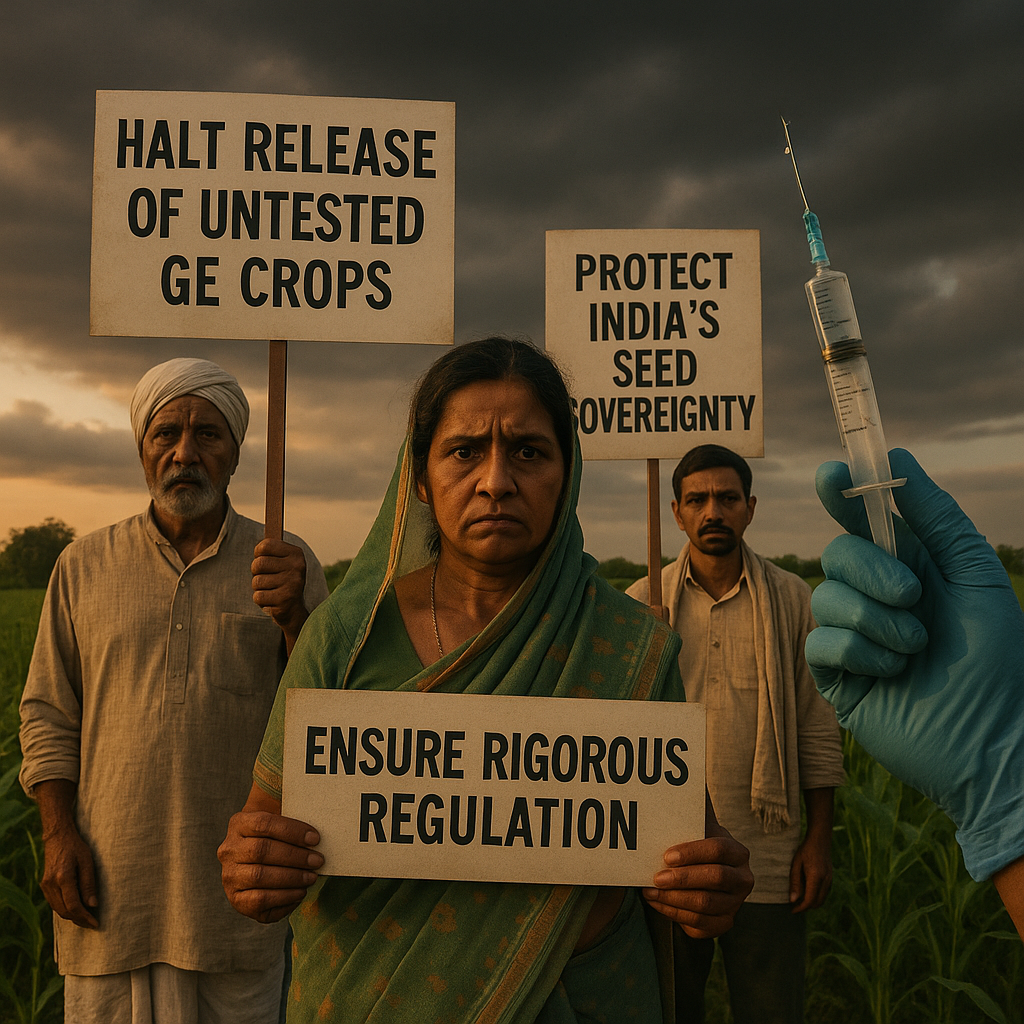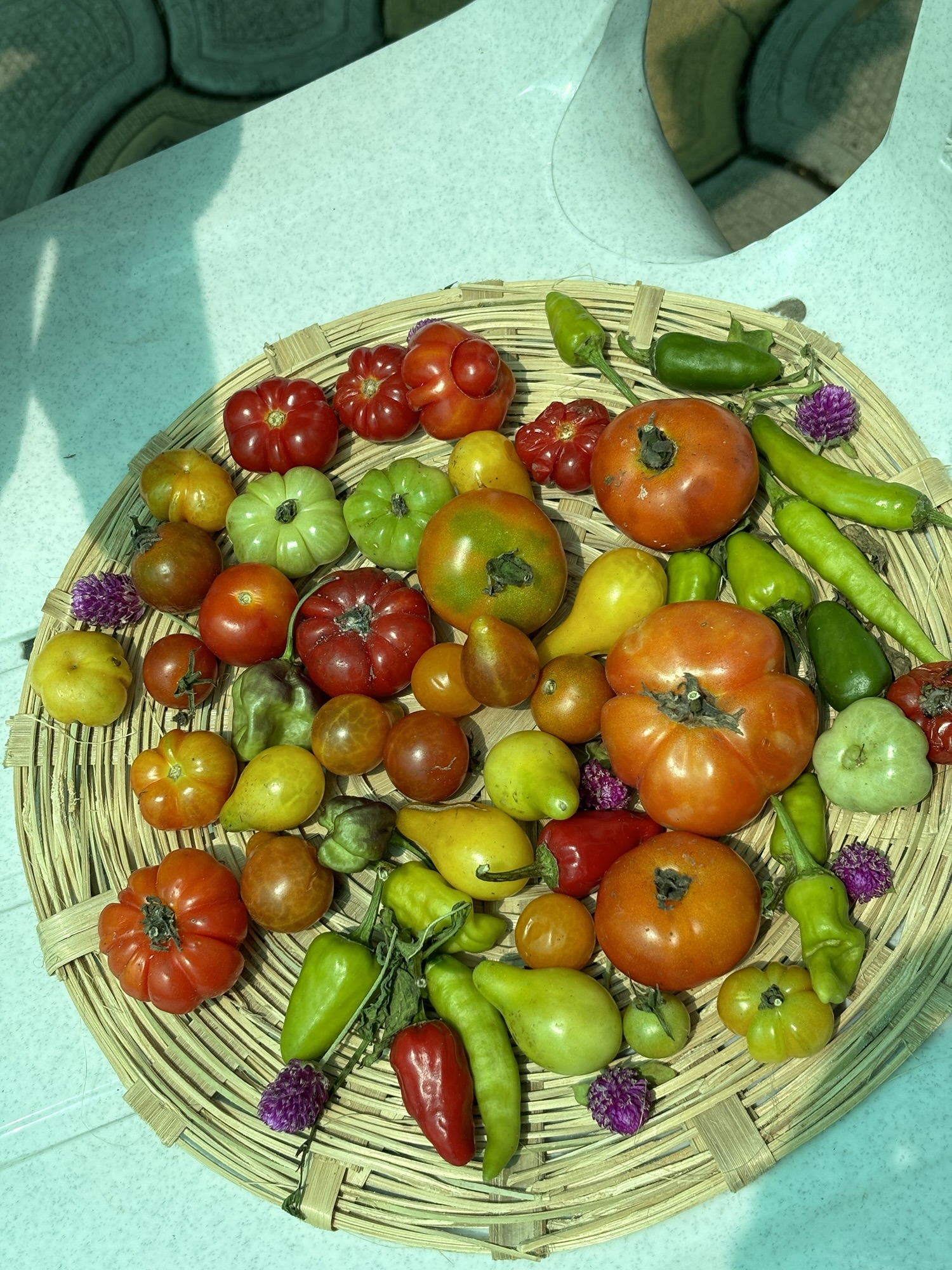New Delhi, India- A broad coalition of 691 individuals, including doctors, researchers, farmers, and public health experts, alongside hundreds of public-spirited organisations operating under the banner of the Coalition for a GM-Free India, has issued an urgent plea to the Union Minister for Agriculture & Farmers’ Welfare. In a letter dated June 26, 2025, the Coalition strenuously urged the government not to release untested and potentially unsafe gene-edited rice varieties, ‘Kamala’ (DRR Dhan 100) and ‘Pusa DST Rice 1’, and gene-edited sheep.
The Coalition asserts that the government has been “misled by a particular ‘scientific community'” that promotes transgenic crops, leading to a disregard for extensive scientific literature highlighting the imprecision and unpredictability of gene editing. They demand that all forms of gene editing be brought under comprehensive and rigorous regulation, arguing that current deregulation of certain techniques poses severe risks to human health, the environment, and India’s agricultural future.
Primary Scientific and Environmental Concerns Detailed:
The letter outlines several critical concerns, focusing on the inherent nature of gene editing and the current regulatory landscape:
Imprecision and Unpredictability of Gene Editing:
Despite claims of precision, gene-editing tools like CRISPR-Cas cause numerous unintended mutations, both at the targeted site and off-site. These can lead to new gene sequences and mutant proteins with unknown consequences, potentially resulting in toxicity and/or allergenicity for human and animal consumers.
Scientific evidence suggests gene editing leads to genetic changes different from those produced by conventional breeding and natural mutations. Unlike natural mutations, gene editing affects all copies of a gene, including naturally protected and conserved regions.
SDN-1 technology, specifically used in ‘Kamala’ and ‘Pusa DST Rice 1’, can induce structural changes such as translocations, duplications, and inversions of gene segments, as well as epigenetic changes due to random repair mechanisms.
The phenomenon of chromothripsis, a catastrophic genomic rearrangement involving hundreds of simultaneous genetic changes, has been found to occur far more frequently in gene-edited crops than previously believed, leading to poorly understood consequences.
Detecting all unintended DNA damage, especially larger alterations, is difficult and often requires whole genome sequencing, which is generally not performed. For rice, the CRISPR/Cas9 system has specifically been shown to be imprecise, leading to large insertions, deletions, and rearrangements that could alter non-target gene functions.
Unintentional Presence of Foreign Genetic Material:
The process of creating gene-edited organisms involves foreign genetic material like plasmids, vectors, and antibiotic-resistant marker genes. Even when not intended, these can be unintentionally implanted into the host organism.
Instances include gene-edited cattle found with superfluous bacterial plasmid DNA, including antibiotic resistance genes, and gene-edited mice containing goat and bovine DNA from culture media.
This raises significant concerns about horizontal gene transfer of foreign DNA and potentially pathogens, as well as the risk of antibiotic resistance being transferred to humans through gene-edited crops like rice. Conventional PCR analysis has also proven insufficient to detect these multiple integration events.
Environmental and Ecological Risks:
Gene-edited plants pose a risk of contaminating conventional varieties and wild relatives, potentially causing irreversible damage to India’s diverse rice gene pool, akin to what has been observed with GM cotton.
Such contamination threatens traditional varieties vital for natural farming, including those with inherent drought and salinity tolerance and high yields.
The long-term impact of genetic changes to genes responsible for nutrient uptake and regulation in the announced rice varieties remains unclear without sufficient safety research. There is also potential for unintended adverse impacts on non-target organisms.
Inadequate Regulation and Lack of Biosafety Testing:
The Coalition strongly argues that India’s deregulation of SDN-1 and SDN-2 techniques removes the mandate for crucial biosafety testing to check for foreign genetic material.
The current system of self-regulation by Institutional Bio-Safety Committees (IBSC) is deemed a conflict of interest and tantamount to deregulation, as these committees are unlikely to impede their own institution’s research.
The Coalition maintains that gene editing is genetic modification and should be fully regulated under India’s existing GMO regulations, as per the Environment Protection Act of 1986 and a 2018 ruling by the European Court of Justice.
They highlight that unlike India, countries such as Mexico, Malaysia, South Korea, Indonesia, and even the USA, apply statutory regulatory regimes to all genome-edited products.
A significant lack of publicly available data and thorough testing to demonstrate the safety and claimed benefits of these gene-edited rice varieties and sheep is also a major concern.
Intellectual Property Rights (IPR) Issues:
The proprietary nature of gene-editing tools could threaten India’s seed sovereignty and result in a misuse of public resources. The government has not clarified the IPR situation regarding the new rice varieties or the terms of acquisition for the technological tools used.
Threat to Export Markets:
Introducing gene-edited rice could jeopardise India’s trade security, especially given that major global markets, particularly in the Middle East/Gulf, have significant reservations about and reject GM and gene-edited produce.
Cultural and Unsubstantiated Claims:
The deletion of base pairs in ‘Pusa DST Rice 1’ (366 base pairs) and ‘Kamala’ (33 base pairs) is viewed as destroying the sanctity of rice used as “Akshat” (unbroken and whole) in various Indian rituals and ceremonies.
Claims that these varieties will reduce cultivation area are dismissed as unfounded, attributing the increased area under paddy to “perverse/locked-in incentives” rather than a lack of productivity. The Coalition also points out that safer, conventionally-bred rice varieties with higher productivity already exist and should be promoted instead.
The Coalition for a GM-Free India urges the immediate withdrawal of the planned release of ‘Kamala’, ‘Pusa DST Rice 1’, and gene-edited sheep, requesting that all relevant data be made public for scientific scrutiny. They insist that all gene-editing in agriculture and animals must remain fully regulated under existing GMO frameworks, withdrawing the exemption of SDN-1 and SDN-2 category gene-edited plants.





